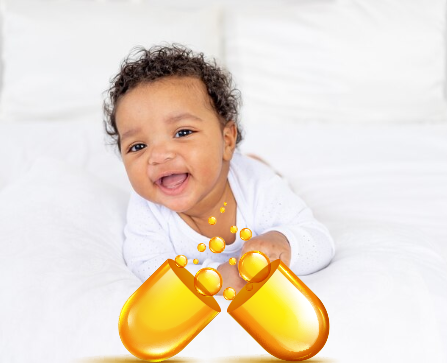
Fertility After 30, 35 & 40: What Changes and What Can Help
Many women today are getting married or planning children later in life because of education, career, finances, or personal readiness.

DHA (docosahexaenoic acid) is an omega-3 fatty acid crucial for brain and eye development in babies. It makes up a major part of the brain’s structure. Your baby’s brain grows rapidly in the first two years, making DHA an essential nutrient during this critical time.
DHA helps form healthy brain cells and improves communication between neurons. It enhances memory, attention, and learning skills. Research shows babies who get enough DHA may reach developmental milestones faster.
Your baby can get DHA from:
Although DHA deficiency isn’t always easy to spot, signs may include:
Talk to your pediatrician if you notice these symptoms.
Babies get DHA in the womb and through breast milk or formula after birth. Once solids are introduced (around 6 months), include DHA-rich foods like:
Always ensure the food is baby-safe and properly prepared.
DHA benefits go beyond infancy. It continues to support:
Studies suggest DHA may even reduce the risk of ADHD and other developmental issues.
A mother’s DHA levels affect the baby’s supply during pregnancy and breastfeeding. Include omega-3-rich foods like flaxseeds, walnuts, and oily fish. Prenatal DHA supplements like Pregnagain Original can also help.
Experts recommend about 100 mg of DHA daily for infants and young children. Breastfed babies usually get enough if the mother’s diet is rich in DHA. Formula-fed babies should use DHA-fortified products.
If your doctor suggests a supplement, choose one that:
Don’t self-prescribe; always seek medical advice first.
DHA plays a powerful role in your baby’s brain development. It supports learning, focus, and overall mental health from day one. By ensuring a steady DHA intake through diet or supplements, you’re helping your baby build a strong foundation for life.
Smart nutrition starts early—support your baby’s brain with DHA every day.

Many women today are getting married or planning children later in life because of education, career, finances, or personal readiness.

Many people think fertility problems start only when you’re actively trying to conceive.The truth? Fertility is shaped quietly by everyday

Every woman is born with all the eggs she will ever have, about 1 to 2 million. But as the

2b Mojola street, Ajao Estate, Anthony Village, 100232, Lagos State, Nigeria.
International Corporate Office. 1907 Indigo Shores Lane, Rosenberg Texas, 77469 USA.
14b Idowu Ajao Street, Anthony Village, 105102,
Lagos State, Nigeria.